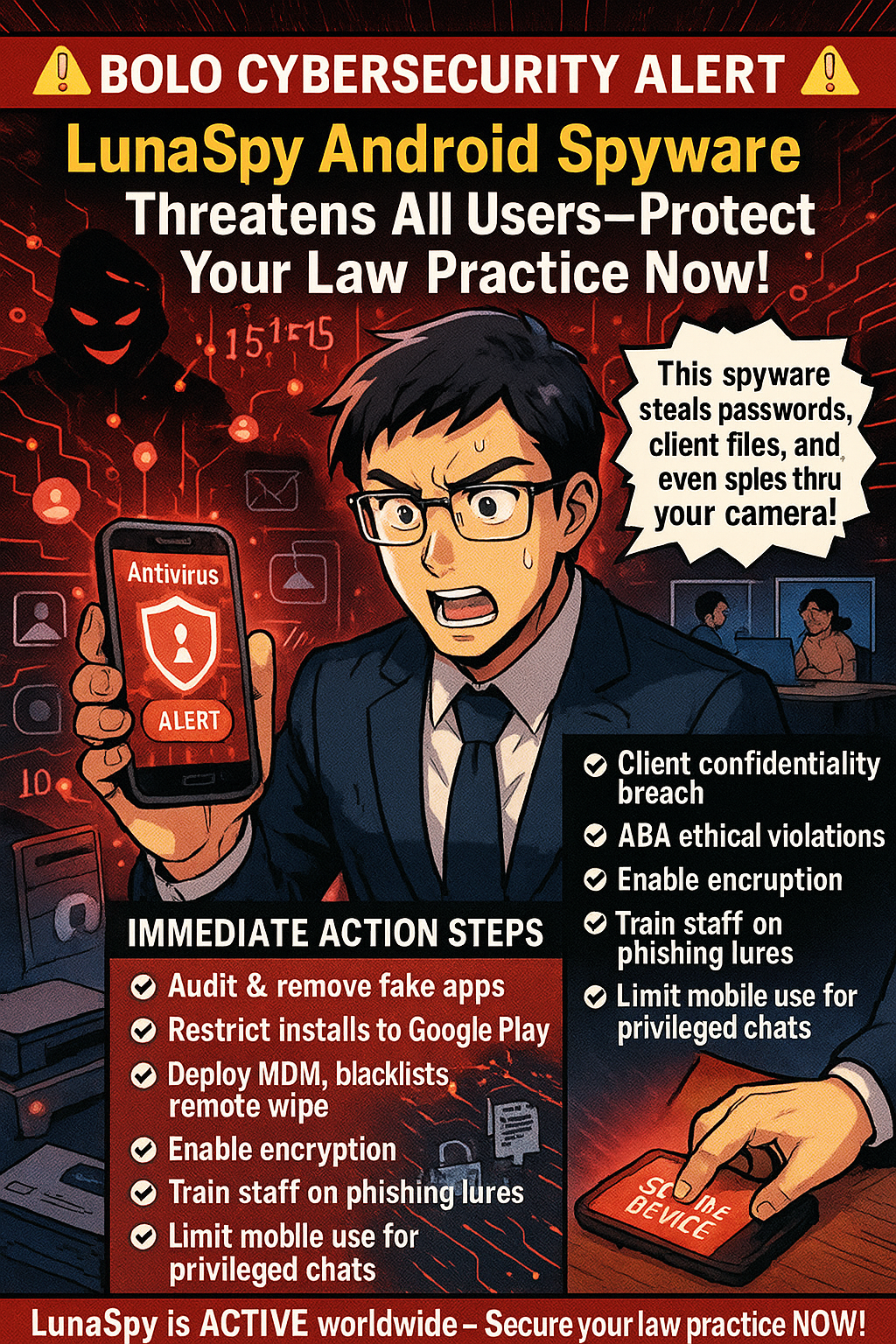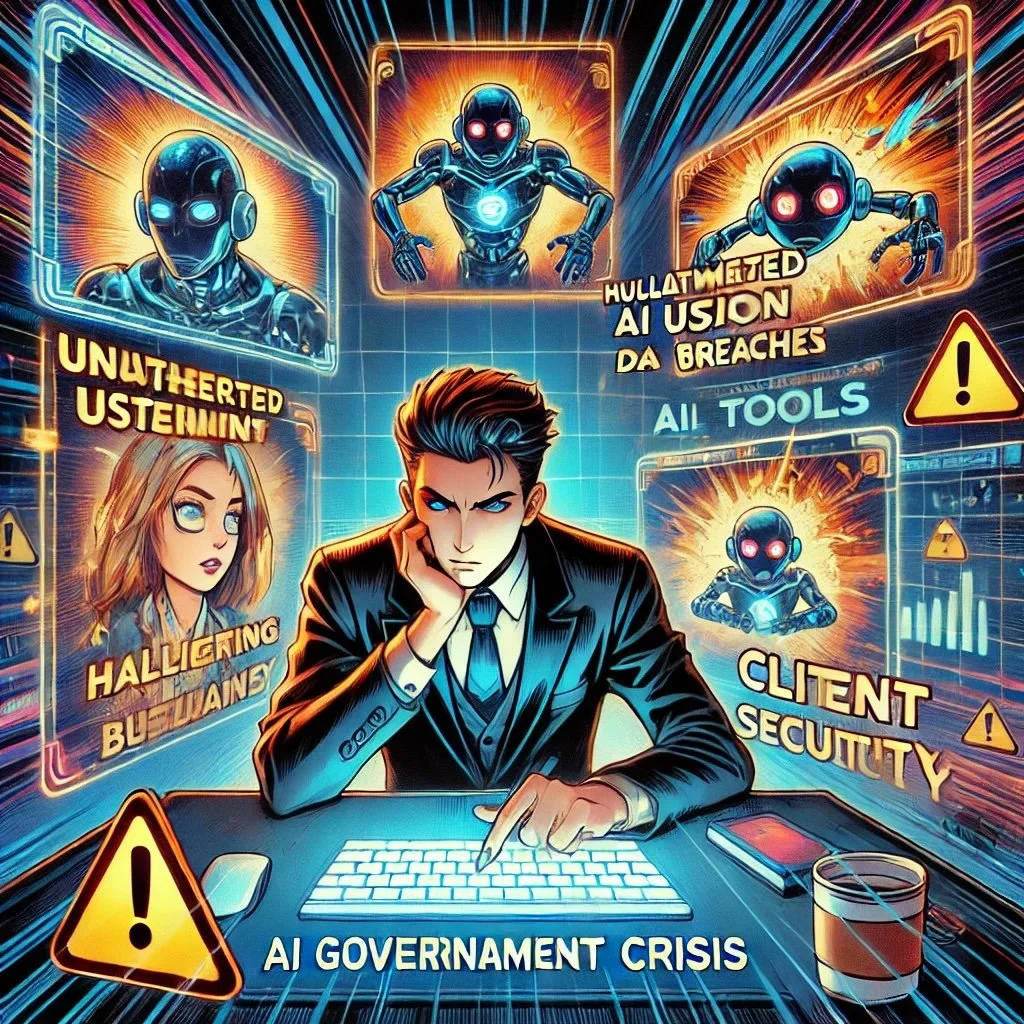📰 How to Ensure a Public Wi-Fi Network Is Legitimate (and Why Legal Professionals Must Always Use a VPN)!
/Working remotely has become essential for legal professionals; however, public Wi-Fi networks pose significant security risks that can compromise client confidentiality and violate ethical obligations. Before connecting to any public network, lawyers must take specific steps to verify legitimacy and protect sensitive information.
Verify the Network Name with Staff
The first step in ensuring Wi-Fi legitimacy is confirmation. Ask an employee at the establishment for the exact network name and spelling. Cybercriminals frequently create "evil twin" networks with names nearly identical to legitimate ones, such as "LAX Free Public WiFi" instead of the official "_LAX Free WiFi". These spoofed networks are designed to capture your data the moment you connect.
Recognize Red Flags in Network Names
Be suspicious of generic network names like "Free WiFi," "Public Network," or "Guest WiFi”. Legitimate businesses typically use branded network names. Additionally, watch for small variations in spelling, extra spaces, underscores, or additional characters in familiar network names. These subtle differences often indicate malicious networks designed to deceive users.
Check for Proper Security Protocols
Once connected to a verified network, ensure websites load with HTTPS encryption. Look for the lock icon in your browser's address bar and confirm URLs begin with "https://" rather than "http://". If legitimate websites suddenly appear as HTTP instead of HTTPS, disconnect immediately, as this may indicate a man-in-the-middle attack.
Disable Automatic Connections
Turn off automatic Wi-Fi connections on all devices. This prevents your device from automatically connecting to potentially malicious networks with names similar to previously trusted ones. Always manually select the verified network name and choose "Public" when your device prompts you to select a network type.
Essential VPN Usage for Legal Professionals
Legal professionals must always use a VPN when connecting to public Wi-Fi. This is not merely a recommendation but an ethical necessity. The American Bar Association Model Rules of Professional Conduct require lawyers to make reasonable efforts to protect client information from unauthorized disclosure. Using public Wi-Fi without VPN protection violates this duty of confidentiality.
A VPN encrypts all internet traffic, making it unreadable to potential eavesdroppers even on compromised networks. This encryption is crucial for maintaining attorney-client privilege and protecting sensitive case information during remote work.
Additional Security Measures
Enable two-factor authentication on all important accounts before traveling. Turn on your device's firewall and disable file sharing when using public networks. Keep your operating system and browser updated to patch security vulnerabilities. Never conduct sensitive activities like online banking (like accessing your Trust Account) or accessing confidential case management systems without VPN protection.
Ethical Obligations and Professional Competence
The duty of competence under professional conduct rules requires lawyers to understand relevant technology risks. Working from public locations without proper security measures can result in data breaches that damage client relationships and potentially violate professional ethics rules. Law firms must establish policies to ensure that all staff understand these requirements when working remotely. Editor’s note: I realize that as I’m delving into this subtopic, I could write a whole separate blog post on this - so stay tuned!
Emergency Alternatives
When in doubt about Wi-Fi legitimacy, use your mobile device's cellular hotspot instead of connecting to questionable public networks. This provides a more secure connection for accessing sensitive information. Many legal professionals keep backup mobile data plans specifically for situations where public Wi-Fi security cannot be verified. (You may find your mobile hotspot to be more, secure, reliable and even faster than public wifi networks [even your hotel’s wifi]. You may want to consider having devices on two different networks in case one network is having issues.)
Remember: Client confidentiality is paramount in legal practice. Taking these verification steps and always using VPN protection ensures you meet your ethical obligations while maintaining the flexibility to work from any location securely.

















